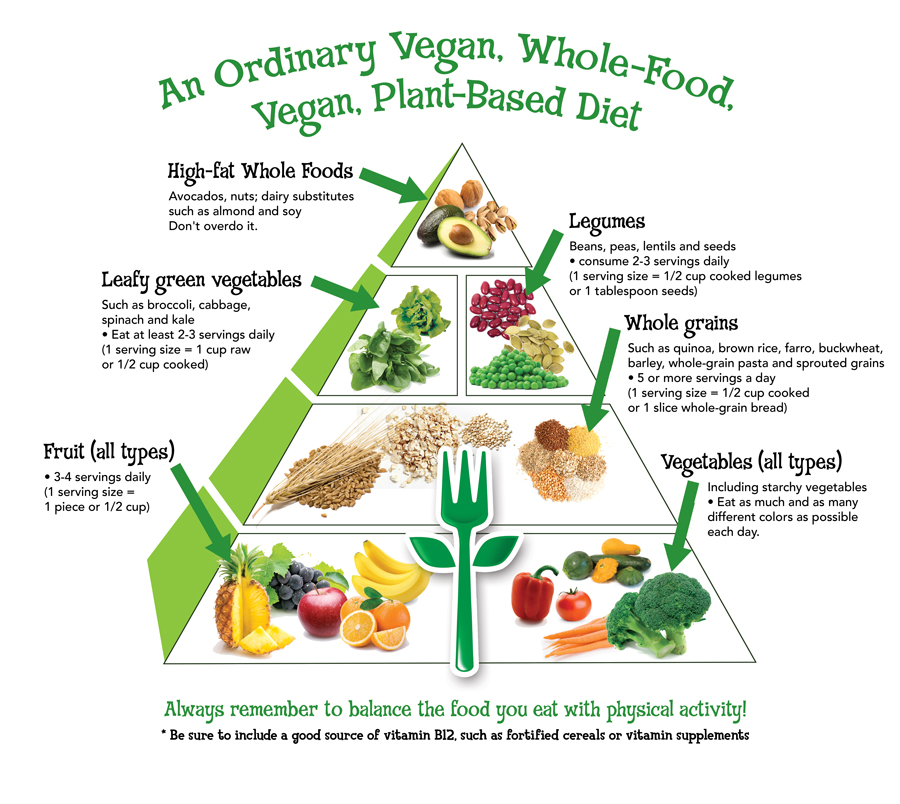Best Brands for Gluten Free BBQ Sauce in Chicago
Best Brands for Gluten Free BBQ Sauce in Chicago
Blog Article
All Regarding Healthy And Balanced Food: Benefits of Checking Out Plant Based Choices
The conversation bordering plant-based diet regimens has actually obtained substantial focus over the last few years. Many people are discovering the potential health and wellness benefits, nutritional advantages, and environmental effects related to these dietary options. As individuals come to be more knowledgeable about their food's impact on wellness and sustainability, concerns develop regarding the practicalities of adopting such a way of living. What details changes can one expect, and just how might these options improve not just individual health and wellness but also the world's future?
Recognizing Plant-Based Diets
Numerous individuals link plant-based diets generally with vegetarianism or veganism, these diet plans can incorporate a large range of consuming patterns that prioritize entire, minimally processed plant foods. Such diets frequently include fruits, vegetables, whole grains, seeds, beans, and nuts, while eliminating or limiting pet items. This versatility enables individuals to customize their dietary options according to nutritional demands and individual choices. Some might adopt a largely plant-based diet plan while still occasionally consuming meat or dairy products, frequently described as a flexitarian strategy. The emphasis remains on including more plant foods, which can result in a diverse array of flavors and dishes. Comprehending these different interpretations of plant-based eating is crucial for valuing its availability and charm in contemporary food culture.
Wellness Advantages of Plant-Based Foods
The health and wellness benefits of plant-based foods are significant, offering a nutrient density benefit that sustains general wellness. Research study indicates that these foods can improve heart wellness and play a necessary role in efficient weight management. By incorporating a lot more plant-based alternatives, people might enhance their nutritional choices and advertise long-term health and wellness.
Nutrient Thickness Advantage
Nutrient thickness plays a vital function in the wellness advantages of plant-based foods, making them an engaging selection for those looking for a balanced diet regimen. Plant-based foods, such as fruits, vegetables, vegetables, nuts, and whole grains, are commonly abundant in vital vitamins, minerals, and antioxidants while being lower in calories. This high nutrient thickness permits people to take in less calories while still meeting their nutritional needs. Furthermore, these foods are packed with dietary fiber, promoting digestive system health and helping in weight administration. By integrating nutrient-dense plant-based alternatives, consumers can improve their overall health and wellness, sustain their immune systems, and minimize the threat of chronic conditions. Eventually, the nutrient density of plant-based foods highlights their importance in a health-conscious way of living.
Heart Health And Wellness Renovation

Weight Monitoring Support
In enhancement to promoting heart health and wellness, a plant-based diet can significantly aid in weight management. This nutritional technique emphasizes whole foods such as fruits, vegetables, vegetables, nuts, and whole grains, which are generally reduced in calories and higher in fiber compared to animal-based items. The high fiber content assists boost satiety, minimizing total calorie intake. Furthermore, plant-based diet plans are commonly rich in important nutrients while low in undesirable fats, making it simpler to keep a healthy and balanced weight. Plant Based Chicken. Research study suggests that individuals that take on a plant-based lifestyle often tend to have reduced body mass indexes (BMIs) and experience even more successful weight management compared to those that eat meat-heavy diet regimens. Subsequently, accepting plant-based alternatives is a critical selection for efficient weight monitoring
Nutritional Worth of Plant-Based Active Ingredients
Plant-based components are abundant in necessary nutrients, providing a varied selection of vitamins, minerals, and antioxidants that add to general health and wellness. A comparison of healthy protein resources reveals that while animal products are typically deemed superior, lots of plant-based alternatives offer adequate healthy protein and various other helpful substances. Comprehending the nutritional worth of these ingredients can help people make notified nutritional options.
Essential Nutrients in Plants
Nutrient-rich ingredients found in plants offer a varied variety of important nutrients that contribute significantly to total health and wellness. These ingredients are abundant in vitamins A, C, and K, which sustain immune feature, vision, and blood clot, respectively. In enhancement, plants give crucial minerals such as calcium, magnesium, and potassium, important for heart health and wellness, muscular tissue feature, and bone strength. The visibility of fiber in plant-based foods help digestion and promotes a healthy and balanced gut microbiome. Antioxidants, discovered generously in veggies and fruits, help fight oxidative tension and reduce inflammation. Additionally, lots of plant foods are reduced in calories yet high in nutrients, making them an excellent option for those looking for to preserve a healthy and balanced weight while guaranteeing optimal nutrient consumption.
Contrasting Healthy Protein Sources
Protein resources vary significantly in their nutritional accounts, with plant-based components offering one-of-a-kind benefits. Unlike pet healthy proteins, which often have saturated fats and cholesterol, plant proteins often tend to be lower in these unhealthy parts. Legumes, nuts, seeds, and entire grains are abundant in see post necessary amino acids, fiber, vitamins, and minerals. Lentils supply high healthy protein web content together with significant iron and folate, while quinoa is a total protein, using all nine important amino acids. In addition, plant-based proteins are often gone along with by anti-oxidants and phytochemicals that support total health and wellness. The change to plant-based healthy protein sources not just improves dietary intake yet also lines up with lasting nutritional practices, minimizing ecological impact and advertising lasting health advantages.
Environmental Effect of Plant-Based Consuming
As understanding of environment modification grows, many individuals are checking out sustainable nutritional choices that can substantially minimize their ecological impact. Plant-based consuming has arised as a considerable factor to lowering greenhouse gas discharges, which are primarily connected with livestock manufacturing. The farming of fruits, veggies, grains, and vegetables generally needs fewer sources, such as water and land, compared to animal farming. Furthermore, plant-based diet regimens can result in reduced deforestation, as much less land is needed for grazing livestock or growing animal feed. By changing in the direction of plant-based options, consumers can sustain biodiversity and advertise much healthier ecological communities. In general, embracing plant-based consuming not just benefits personal wellness but also stands for an essential action towards ecological sustainability and preservation initiatives.
Conquering Common Misconceptions
While several people identify the advantages of a plant-based diet regimen, numerous misunderstandings typically prevent them from completely accepting this way of living. An usual idea is that plant-based diet plans lack adequate protein; however, numerous plant resources, such as beans, nuts, and tofu, give enough healthy protein. Furthermore, some presume that this diet is expensive, when as a matter of fact, staples like beans, rice, and seasonal veggies can be fairly affordable. An additional misconception is that plant-based consuming is extremely restrictive, whereas it actually offers a varied variety of tastes and foods. Ultimately, lots of worry that a plant-based diet regimen might result in deficiencies, yet with correct planning, individuals can acquire all necessary nutrients, consisting of nutrients, while taking pleasure in a wide array of tasty meals.
Tips for Transitioning to a Plant-Based Lifestyle
Making the change to a plant-based lifestyle can be an improving experience, though it typically calls for some support to browse the preliminary adjustments. First, people are encouraged to begin gradually, integrating even more fruits, vegetables, vegetables, and entire grains into their dishes while reducing meat and dairy products intake. Meal preparation is essential; preparing a regular food selection can aid ease the modification and protect against last-minute undesirable options. Discovering new recipes and cooking techniques can also enhance the experience and preserve exhilaration about plant-based eating. Additionally, signing up with support system or areas can offer inspiration and share beneficial pointers. Finally, staying informed regarding nutrition assurances well balanced dishes, stopping shortages while cultivating a healthy and balanced, enjoyable plant-based way of living.
Delicious Plant-Based Dish Ideas
Discovering delicious plant-based dish concepts can influence people to embrace a much more nourishing diet. One prominent alternative is a hearty quinoa salad, including cherry tomatoes, cucumber, and a vibrant lemon-tahini dressing. One more fave is a savory lentil stew, packed with carrots, celery, Visit This Link and great smelling natural herbs, ideal for a soothing supper. For breakfast, overnight oats made with almond milk, chia seeds, and topped with fresh berries supply a nourishing start to the day. Furthermore, a vivid veggie stir-fry with tofu and a variety of vibrant veggies can be a quick yet pleasing dish. Ultimately, creamy avocado toast on whole-grain bread, sprinkled with seasonings and seeds, offers an easy yet delicious treat. These dishes showcase the range and splendor of plant-based eating.

Regularly Asked Inquiries
Can a Plant-Based Diet Plan Provide Sufficient Healthy Protein?
The inquiry of whether a plant-based diet plan can give sufficient protein is typical. Various resources, including beans, nuts, seeds, and whole grains, can meet healthy protein requires properly, sustaining a balanced and nourishing diet plan for individuals.
Are Plant-Based Diet Regimens Appropriate for Children?
The suitability of plant-based diet regimens for kids relies on cautious planning. Ample nutrients need to be guaranteed, consisting of minerals, vitamins, and healthy proteins. With proper advice, such diet plans can sustain healthy growth and development in kids.
How Do I Eat in restaurants on a Plant-Based Diet regimen?
Eating in restaurants on a plant-based diet plan involves seeking dining establishments with diverse food selections, requesting alterations, and exploring vegan-friendly choices. Preparation ahead and connecting dietary preferences can improve the eating experience while preserving nutritional choices.
What Are Typical Irritants in Plant-Based Foods?
Common allergens in plant-based foods consist of soy, gluten, read more nuts, and seeds - Gluten Free BBQ Sauce. People following a plant-based diet plan needs to recognize these irritants and review tags thoroughly to prevent damaging reactions and guarantee safe usage
Can Plant-Based Diets Assist With Weight Reduction?
Study indicates that embracing a plant-based diet plan might help with fat burning due to its usually reduced calorie thickness and greater fiber web content. This mix can boost satiation, helping individuals manage their caloric intake successfully. Lots of individuals connect plant-based diet plans generally with vegetarianism or veganism, these diet plans can include a large variety of eating patterns that focus on entire, minimally refined plant foods. Nutrient thickness plays a crucial duty in the health and wellness benefits of plant-based foods, making them a compelling choice for those seeking a well balanced diet regimen. Plant-based diet regimens have actually been revealed to noticeably enhance heart health and wellness, as they typically consist of elements that support cardio feature. In addition to promoting heart wellness, a plant-based diet regimen can substantially help in weight administration. A typical belief is that plant-based diets do not have adequate protein; nevertheless, various plant resources, such as legumes, nuts, and tofu, give enough healthy protein.
Report this page